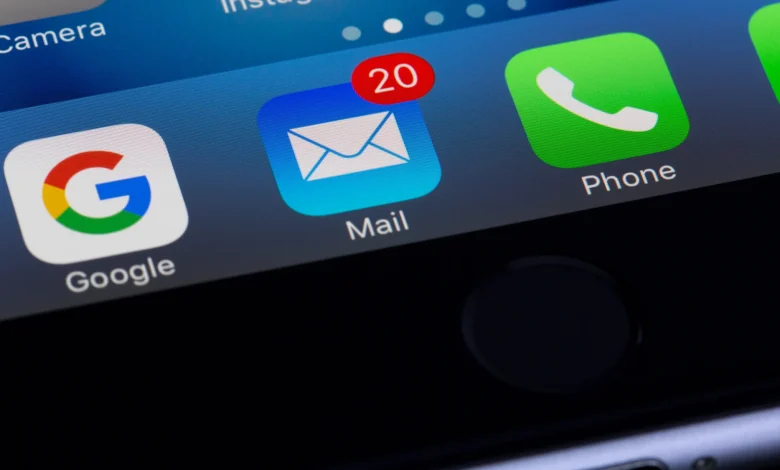Google Warns Android Users About Dangerous Apps

Google has issued a fresh warning to millions of Android users, urging them to avoid downloading certain apps that are currently circulating online. These apps, most of which masquerade as free VPNs, are not only unsafe but also contain dangerous malware that steals personal information, including passwords, messages, banking details, and private files.
This warning comes at a time when cybercriminal activity is rising, and Android users are increasingly frequent targets because many unknowingly download harmful apps from unverified sources. Google’s message is clear: if an app looks suspicious or promises too much, avoid it.
Google’s New Warning to Android Users
Google has discovered a wave of malicious VPN apps designed specifically to trick Android users into giving away sensitive information. These apps are crafted to look helpful and legitimate, but they contain built-in tools hackers use to gain access to your device and everything on it.
Recommended For YouTechnology2025-11-18T13:09:38+00:00
Why X (Twitter), ChatGPT, and Bet365 Just Stopped Working
Cloudflare, an internet infrastructure platform, is experiencing an outage that appears to be impacting websites like X, formerly Twitter.Local2025-11-15T09:47:28+00:00
Pitch Perfect Partners With Leading PR Agencies to Bridge Career Gaps for Young Communicators
#FeaturedPostNews2025-11-18T09:10:37+00:00
Nigeria’s Inflation Drops to 16.05%, Records 7th Consecutive Month of Decline
Month-on-month rural inflation slowed to 0.45%, down by 0.22 percentage points from 0.67% in September.
Google explained that these apps often come from third-party websites, pop-up adverts, fake security alerts, and platforms that pretend to offer “free protection” or access to restricted content. Once installed, these apps begin collecting private data silently in the background.
This means an Android user could be going about their normal day while someone, somewhere, is spying on their phone in real time.
ADVERTISEMENT
Why Android Users Are Being Targeted
Cybercriminals know that Android phones offer greater flexibility for app downloads, and many users install apps from random links, ads, or APK files without verifying their authenticity. This is what attackers rely on.
Google emphasised this in a recent blog post, explaining: “Threat actors distribute malicious applications disguised as legitimate VPN services across a wide range of platforms to compromise user security and privacy. These actors tend to impersonate trusted enterprise and consumer VPN brands or use social engineering lures, such as through sexually suggestive advertising or by exploiting geopolitical events, to target vulnerable users who seek secure internet access.”
Googles’ latest fraud and scams advisory
The most targeted users are people who search for:
-
free VPN apps
-
apps that claim to unlock blocked websites
-
apps promising anonymous browsing
-
apps advertised on pop-ups or in suspicious social media links
These dangerous apps often have attractive names and professional logos, leading users to assume they are safe. But behind the scenes, the apps are loaded with info-stealers, spyware, and banking malware.
Googles’ latest fraud and scams advisory
ADVERTISEMENT
Types of Malware Hidden Inside These Fake Apps
Google’s findings show that these apps are not simple scams, they contain powerful malware capable of causing serious financial and personal harm. Below are the most concerning threats inside these apps:
1. Info-Stealers
This malware collects everything on your phone, including:
-
passwords
-
saved banking details
-
private chats
-
photos and videos
-
email accounts
-
contact lists
Once stolen, the information is uploaded to a remote server controlled by cybercriminals.
-
Banking Trojans
These are created specifically to attack financial apps. They can intercept OTPs, mimic banking interfaces, log keystrokes, and even control the screen to move money without your knowledge.
-
Remote Access Trojans (RATs)
This malware gives hackers full control of your phone. They can operate your device as though they are holding it physically; opening apps, viewing your camera feed, reading messages, and downloading files.
-
Ransomware
Ransomware locks your phone and demands payment before unlocking it. Some forms even threaten to leak private files if you refuse to pay. These threats show why Google’s warning is serious. One careless app download can compromise your entire digital life.
How These Apps Trick People
ADVERTISEMENT
These fake apps use several tactics to lure people into downloading them. Some of the most common tricks include:
-
Fake VPN Apps
Cybercriminals create apps that claim to offer secure browsing and privacy protection. Many Android users do not realise that the “free VPN” they downloaded is actually malware in disguise.
-
Pop-Up Adverts
Some users click on ads claiming “Your phone is at risk” or “Protect your privacy now”. These ads lead to malware downloads.
-
Links Shared Online
Malware apps are often shared through social media, Telegram channels, shady websites, or comment sections.
-
Apps Promising to Unlock Blocked Content
Anything that claims to bypass restrictions quickly often turns out to be harmful.
These tricks rely on user curiosity, urgency, and the desire to access “free” features. But at the end of the day, the risk outweighs the reward.
Google’s Safety Recommendations for Android Users
As part of its warning, Google has shared clear steps Android users should follow. These steps help reduce the risk of installing dangerous apps and protect your device from cyber threats.
-
Download from Trusted Developers Only
Before installing any app, check:
-
the developer name
-
user reviews
-
the number of downloads
-
verified badges
Fake apps often have strange developer names or very few downloads.
-
Avoid Downloading APKs from Unknown Sources
Many harmful apps are distributed as APK files, especially on unverified websites.
-
Avoid Clicking on Random Ads
Do not install apps recommended by pop-ups or strange notifications.
-
Use Google’s VPN Badge
Google recently introduced a special badge that marks trustworthy VPN apps. Only apps with this badge have passed Google’s security checks.
-
Use Play Protect
Google Play Protect helps detect malware and delete dangerous apps automatically.
-
Update Your Phone Regularly
Security updates help your phone stay protected against new threats.
ADVERTISEMENT
How to Know If Your Phone Is Already Infected
If an Android user has unknowingly installed one of these dangerous apps, there are usually signs. Some common symptoms include:
-
phone overheating without reason
-
unusual battery drain
-
sudden pop-ups or strange notifications
-
apps closing by themselves
-
new apps you do not remember installing
-
banking or social media apps behaving oddly
-
Your phone is performing actions you did not trigger
If any of these are happening, your device may be compromised.
RELATED: Meta Will Start Monitoring Your AI Chats From December
Googles’ latest fraud and scams advisory
What To Do If You Installed a Suspicious App
Google advises users to act immediately if they suspect they downloaded a harmful app:
-
Uninstall the app instantly
Remove it from your device before it causes more damage.
-
Update your phone
Install the latest security patches.
-
Run a full Play Protect scan
Google Play Protect can help remove some malware.
-
Change your passwords
Especially for email, banking, and social media accounts.
-
Check your accounts for unusual activity
Look out for strange logins or unauthorised transactions.
ADVERTISEMENT
Google’s warning highlights a rising problem: Android users are being targeted daily by cybercriminals using fake apps to steal sensitive information. The safest approach is to be selective about what you install and avoid apps from unverified sources.
If an app seems too good to be true, it probably is.
Staying cautious, updating your device regularly, and downloading only trusted apps are essential steps to maintaining your digital security.





